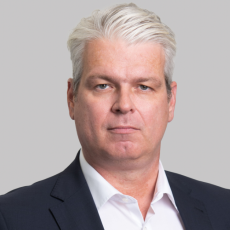What does the success of the green transition depend on today and what role does GKN Automotive play in this transformation?

The net zero goal can only be achieved if all the sectors are contributing to some extent. Not only cars are the subject of this green transition, but also airplanes, raw materials mining, and the overall engagement of society.
Vehicle electrification did not appear by customer demand but by the purpose of reducing CO2 emissions in the transportation sector. In the near future, to have a wider green energy plan established and implemented, it will become absolutely mandatory to locally source rare earths; otherwise, we as a singular element of the whole industry will not be able to deliver on the promise, so considering all these, a cross-sectional engagement is vital.
Having a history that spans over 264 years, GKN was part of the industrial revolution in the UK, the globalization and the success of the auto industry in the '60s, and for 20 years we have been an early adopter of electrification. In fact, we developed our first e-drive application in 2003 in Japan, long before anyone anticipated this transition. Our business model has always been long-term driven, but the key element that pushes us forward is the legacy of driving innovation. As we are a tech company at core, we have the intrinsic aspiration of being at the forefront of technology so we are naturally always part of a transformative process. Coming from pure steel manufacturing into auto parts, and now progressing towards electrified powertrains, is an elaborate process that requires love for innovation, a team of brilliant engineers providing solutions, and also the courage to invest in novel trends.
In the midst of all this transformation, what will be the biggest challenge that GKN will need to face in the coming years?
The required speed of transformation is the biggest challenge at the moment, and we are trying hard to keep a healthy balance between being on the lead of technology and remaining very prudent and selective towards future investment. This technology transformation drives even more competition in the already ambitious automotive space, but we are lucky to have an agnostic core business that allows us to be flexible. Consequently, we are able to move the vast majority of our car portfolio from pure combustion engines into electrification without significant disruption.
With such a holistic set of operations, how are you perceiving the problem of talent, especially regarding qualified engineers?
With the new products carrying a lot more electronics and software, we need to shift the skill set. Since the best workforce is the one that you already have, we are providing new aptitudes training to our current employees through a strong talent development process. However, we cannot transform every mechanical engineer into a software engineer, so we are also working on our employer branding to become more visible across our evolution from an auto parts supplier to a full system partner to OEMs. Finally, we are trying to engage potential candidates very early on, at university level, through apprenticeship programs.
What are the main objectives for GKN in the coming three to five years?
At some point, when the electrification journey started, I felt it was time to move from my robotics and chassis background into power trains to bring all the learning from chassis controls into this area. Now that there is a higher focus on simplification and modularity, I find it extremely interesting to be a contributor in the electrification market. At a company level, the whole lineup of how the business is operating, the product portfolio is progressing, and the organization is evolving is aligned with the purpose to drive a more sustainable world. Our future plans include managing and mastering the transition from ICEs to EVs and expanding our portfolio into the e-drive components space providing healthy profitable growth. It all boils down to evolving in a way that allows us to continue to finance ourselves and remain self-sustainable for the years to come.





